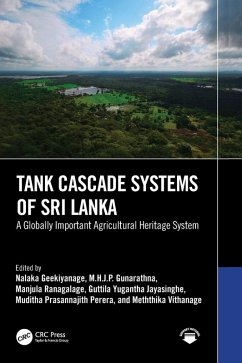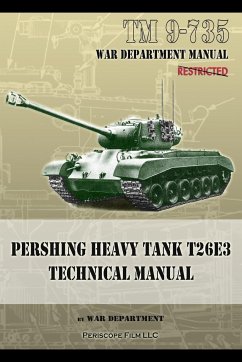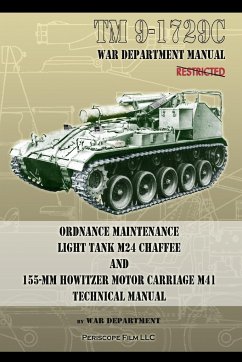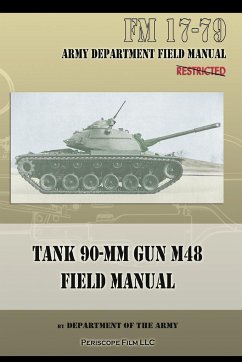Tank Cascade Systems of Sri Lanka
A Globally Important Agricultural Heritage System
Herausgeber: Geekiyanage, Nalaka; Ranagalage, Manjula; Gunarathna, M. H. J. P.
Tank Cascade Systems of Sri Lanka
A Globally Important Agricultural Heritage System
Herausgeber: Geekiyanage, Nalaka; Ranagalage, Manjula; Gunarathna, M. H. J. P.
- Gebundenes Buch
- Merkliste
- Auf die Merkliste
- Bewerten Bewerten
- Teilen
- Produkt teilen
- Produkterinnerung
- Produkterinnerung
The Tank Cascade System of Sri Lanka is internationally recognized by FAO and the UN as a Globally Important Agricultural Heritage System for food security and sustainable development in a changing climate. This edited volume gives a comprehensive and holistic coverage of the cascade systems, from their origins to challenges, and management.
Andere Kunden interessierten sich auch für
![Septic Tank System Effects on Ground Water Quality Septic Tank System Effects on Ground Water Quality]() Larry W. CanterSeptic Tank System Effects on Ground Water Quality323,99 €
Larry W. CanterSeptic Tank System Effects on Ground Water Quality323,99 €![A17 Tetrarch Tank A Technical History A17 Tetrarch Tank A Technical History]() P. M. KnightA17 Tetrarch Tank A Technical History33,99 €
P. M. KnightA17 Tetrarch Tank A Technical History33,99 €![TM 9-735 Pershing Heavy Tank T26E3 Technical Manual TM 9-735 Pershing Heavy Tank T26E3 Technical Manual]() War DepartmentTM 9-735 Pershing Heavy Tank T26E3 Technical Manual23,99 €
War DepartmentTM 9-735 Pershing Heavy Tank T26E3 Technical Manual23,99 €![FM 17-74 M26 Pershing Medium Tank Crew Drill, Service of the Piece and Stowage FM 17-74 M26 Pershing Medium Tank Crew Drill, Service of the Piece and Stowage]() Department Of The ArmyFM 17-74 M26 Pershing Medium Tank Crew Drill, Service of the Piece and Stowage13,99 €
Department Of The ArmyFM 17-74 M26 Pershing Medium Tank Crew Drill, Service of the Piece and Stowage13,99 €![TM9-1729C Ordnance Maintenance Light Tank M24 Chaffee TM9-1729C Ordnance Maintenance Light Tank M24 Chaffee]() War DepartmentTM9-1729C Ordnance Maintenance Light Tank M24 Chaffee13,99 €
War DepartmentTM9-1729C Ordnance Maintenance Light Tank M24 Chaffee13,99 €![Tank 90-MM Gun M48 Field Manual Tank 90-MM Gun M48 Field Manual]() Department Of The ArmyTank 90-MM Gun M48 Field Manual13,99 €
Department Of The ArmyTank 90-MM Gun M48 Field Manual13,99 €![A25 Harry Hopkins Tank & SP3 Alecto A Technical History A25 Harry Hopkins Tank & SP3 Alecto A Technical History]() P. M. KnightA25 Harry Hopkins Tank & SP3 Alecto A Technical History28,99 €
P. M. KnightA25 Harry Hopkins Tank & SP3 Alecto A Technical History28,99 €-
-
-
The Tank Cascade System of Sri Lanka is internationally recognized by FAO and the UN as a Globally Important Agricultural Heritage System for food security and sustainable development in a changing climate. This edited volume gives a comprehensive and holistic coverage of the cascade systems, from their origins to challenges, and management.
Produktdetails
- Produktdetails
- Verlag: CRC Press
- Seitenzahl: 558
- Erscheinungstermin: 30. Mai 2025
- Englisch
- Abmessung: 260mm x 183mm x 34mm
- Gewicht: 1231g
- ISBN-13: 9781032849904
- ISBN-10: 1032849908
- Artikelnr.: 72005427
- Herstellerkennzeichnung
- Libri GmbH
- Europaallee 1
- 36244 Bad Hersfeld
- gpsr@libri.de
- Verlag: CRC Press
- Seitenzahl: 558
- Erscheinungstermin: 30. Mai 2025
- Englisch
- Abmessung: 260mm x 183mm x 34mm
- Gewicht: 1231g
- ISBN-13: 9781032849904
- ISBN-10: 1032849908
- Artikelnr.: 72005427
- Herstellerkennzeichnung
- Libri GmbH
- Europaallee 1
- 36244 Bad Hersfeld
- gpsr@libri.de
Nalaka Geekiyanage is a Senior Lecturer at Rajarata University, Sri Lanka. He holds a B.Sc. and M.Sc. from the University of Peradeniya and earned his Ph.D. from Kyoto University. His expertise lies in Forestry, Plant Ecology, and Restoration Ecology, with a focus on the ecological dynamics of tropical ecosystems. Geekiyanage has authored over 25 peer-reviewed journal articles and book chapters. He has been recognized with 15 awards and fellowships, including the President's Award for Scientific Publications. Geekiyanage serves as an Editor for the renowned journals Plant Ecology and Diversity and Journal of Sustainable Forestry. In addition to his academic work, he is actively involved in securing funding for research, development, and conservation initiatives, while being passionate about popularizing science. M.H.J.P Gunarathna, Professor in Agricultural Engineering at the Rajarata University of Sri Lanka, earned First-Class Honors B.Sc. in Agriculture from the University of Ruhuna, M.Sc. in Agricultural Engineering from Central Luzon State University, Philippines and Ph.D. in Regional Resource Environmental Engineering from Kagoshima University, Japan. With over 40 articles and several books written in water management and environmental modelling, he's recognized as a 4-star researcher with an h-index of 14. He serves as a reviewer and editorial board member for several national and international journals and has received numerous awards for research excellence. Manjula Ranagalage, Professor at Rajarata University, Sri Lanka, earned a Ph.D. in Geo-Environmental Sciences from the University of Tsukuba, Japan. With expertise in Geo-informatics and Geography, he's published over 50 articles and serves on editorial boards of international journals. He's a leading figure in Social Sciences and Humanities in Sri Lanka. He Was a JSPS postdoctoral Research Fellow at the University of Tsukuba, Japan. He won several national and international awards for research excellence. He is a council member of the National Research Council, Sri Lanka. G.Y. Jayasinghe, Professor in Agricultural Engineering and Environmental Technology at Ruhuna University, Sri Lanka, received prestigious awards including the Endeavour Postgraduate Research Fellowship, Australia and Monbukagakusho Award, Japan. With over 150 publications and contributions to conferences, he's recognized for scholarly contributions. He serves as an expert for institutional reviews, showcasing expertise in Agricultural Engineering and Environmental Technology. Muditha Prasannajith Perera, Professor in Geography at the University of Peradeniya, specializes in hydro-ecology, hydraulic civilization, and watershed management. Recognized for over 80 publications, and he serves as an editorial board member and reviewer for a few national and international journals. His expertise extends to tank cascade irrigation systems and watershed management projects in Sri Lanka, India, and Bangladesh. He coordinates academic programs at the Postgraduate Institute of Science, University of Peradeniya. Meththika Vithanage, Professor in Natural Resources at the University of Sri Jayewardenepura, is a Highly Cited Researcher recognized by Clarivate Analytics. She received the Fayzah M. Al-Kharafi Award from TWAS in 2020. She has written and contributed to over 250 SCI journal articles, 60 book chapters, and 8 co-edited books. She serves as an Adjunct Professor at the University of Western Australia and the National Institute of Fundamental Studies, Sri Lanka.
1. Executive Summary for Tank Cascade Systems of Sri Lanka: A Globally
Important Agricultural Heritage System. Section 1: Background. 2. Evolution
of Village Tanks to Tank Cascade Systems: An Archaeological and Historical
Investigation. 3. Tank Cascade Systems of Sri Lanka: Concept, Components,
and Complexity. 4. Hydrology and Water Management in Tank Cascade Systems
of Sri Lanka. 5. Preserving Cultural Riches: The Fading Ritual Legacy of
Sri Lanka's Tank Cascasde Systems. 6. The Economic Value of Ecosystem
Services Arising from Village Tank Cascade Systems (TCS). 7. Biodiversity
of Kala Oya Cascade System. 8. Ecological and Evolutionary Affinities of
Avifauna in the Tank Cascade Systems of Sri Lanka. Section 2: Sustainable
Utilization. 9. Knowledge and Wisdom of Fatmers in Tropical Agricultural
Systems: Ethnobotanical Knowledge in Tank Cascade Systems of Sri Lanka. 10.
Legacy of Animal Agriculture in Tank Cascade Systems. 11. Culture-based
Fisheries in Tank Cascade Systems for Food Systems and Livelihoods. 12.
Ornamental Aquatic Flora in Tank Cascade System of Sri Lanka: An
Unexploited Treasure Trove. 13. Promise of Community-Based Agro-Ecotourism
in Tank Cascade Systems of Sri Lanka. Section 3: Issues and Challenges. 14.
Irrigation Water Quality Management in Tank Cascade Systems. 15. Moving
Beyond Deterrence: Socio-economic Factors Driving Bio-Fence Adoption among
Dry Zone Farmers to Mitigate Human-Elephant Conflict. 16. Tackling Issues
of Soil Erosion and Sedimentation in Tank Cascade Systems of Sri Lanka. 17.
Spatiotemporal Changes of the Forest Degradation in Tank Cascade Systems of
Sri Lanka. 18.Role of Property Rights for Open Access Resources in Tank
Cascade Systems in Sri Lanka. 19. Degradation of Tank Cascade Systems:
Colonial Period to the Present-Day. 20. Managing Invasive Alien Plants in
Tank Cascade Systems in Sri Lanka. Section 4: Sustainable Management. 21.
Ecological Restoration of Sri Lanka's Tank Cascade Systems. 22. Nexus of
Food Security and Tank Cascade Systems in Sri Lanka. 23. Building
Resilience to Climate Change Impacts on Tank Cascade
Systems-Livelihoods-Environment Nexus: A Synergic Management Approach. 24.
Tank Cascade Systems of Sri Lanka and Human Health Implications. 25. Tank
Cascade Systems and Disaster Resilience: An Integrated Approach. 26. Gender
Perspective on Participatory Management of Tank Cascade Systems in Sri
Lanka. 27. Nature-Based Solutions for Sustainable Agricultural Water
Management: An Example of Sri Lanka's Tank Cascade Systems. 28. Governance
of Village Tank Cascade System Restoration: Role of Watershed Scale
Coordinating Mechanisms for Aligning Interests and Services. Section 5:
Case Studies. 29. Significance and Conservation Strategies for Thaulla of
Ancient Tanks in the Tank Cascade System in Sri Lanka. 30. Cyrtobagous
salviniae for Bio-controlling Salvinia molesta in Tank Cascade Systems of
Medawachchiya in Northcentral Sri Lanka. 31. A Case Study on Eco-cultural
Heritage Tourism: An Innovative Rendezvous of Past Hydraulic Civilization
with the Present and Future. 32. Managing Flood Risk in Tank Cascade
Systems of Sri Lanka for Improved Disaster Resilience. 33. Declining
Performance of Village Tanks: A Case Study in Vavuniya District, Sri Lanka.
34. Socio-cultural, Ecological and Legal Perspectives on Small Tank
Management in a Cascade System in Anuradhapura, Sri Lanka. Section 6:
Synthesis. 35. Research, Development, and Conservation Needs for
Sustainable Management of Tank Cascade Systems.
Important Agricultural Heritage System. Section 1: Background. 2. Evolution
of Village Tanks to Tank Cascade Systems: An Archaeological and Historical
Investigation. 3. Tank Cascade Systems of Sri Lanka: Concept, Components,
and Complexity. 4. Hydrology and Water Management in Tank Cascade Systems
of Sri Lanka. 5. Preserving Cultural Riches: The Fading Ritual Legacy of
Sri Lanka's Tank Cascasde Systems. 6. The Economic Value of Ecosystem
Services Arising from Village Tank Cascade Systems (TCS). 7. Biodiversity
of Kala Oya Cascade System. 8. Ecological and Evolutionary Affinities of
Avifauna in the Tank Cascade Systems of Sri Lanka. Section 2: Sustainable
Utilization. 9. Knowledge and Wisdom of Fatmers in Tropical Agricultural
Systems: Ethnobotanical Knowledge in Tank Cascade Systems of Sri Lanka. 10.
Legacy of Animal Agriculture in Tank Cascade Systems. 11. Culture-based
Fisheries in Tank Cascade Systems for Food Systems and Livelihoods. 12.
Ornamental Aquatic Flora in Tank Cascade System of Sri Lanka: An
Unexploited Treasure Trove. 13. Promise of Community-Based Agro-Ecotourism
in Tank Cascade Systems of Sri Lanka. Section 3: Issues and Challenges. 14.
Irrigation Water Quality Management in Tank Cascade Systems. 15. Moving
Beyond Deterrence: Socio-economic Factors Driving Bio-Fence Adoption among
Dry Zone Farmers to Mitigate Human-Elephant Conflict. 16. Tackling Issues
of Soil Erosion and Sedimentation in Tank Cascade Systems of Sri Lanka. 17.
Spatiotemporal Changes of the Forest Degradation in Tank Cascade Systems of
Sri Lanka. 18.Role of Property Rights for Open Access Resources in Tank
Cascade Systems in Sri Lanka. 19. Degradation of Tank Cascade Systems:
Colonial Period to the Present-Day. 20. Managing Invasive Alien Plants in
Tank Cascade Systems in Sri Lanka. Section 4: Sustainable Management. 21.
Ecological Restoration of Sri Lanka's Tank Cascade Systems. 22. Nexus of
Food Security and Tank Cascade Systems in Sri Lanka. 23. Building
Resilience to Climate Change Impacts on Tank Cascade
Systems-Livelihoods-Environment Nexus: A Synergic Management Approach. 24.
Tank Cascade Systems of Sri Lanka and Human Health Implications. 25. Tank
Cascade Systems and Disaster Resilience: An Integrated Approach. 26. Gender
Perspective on Participatory Management of Tank Cascade Systems in Sri
Lanka. 27. Nature-Based Solutions for Sustainable Agricultural Water
Management: An Example of Sri Lanka's Tank Cascade Systems. 28. Governance
of Village Tank Cascade System Restoration: Role of Watershed Scale
Coordinating Mechanisms for Aligning Interests and Services. Section 5:
Case Studies. 29. Significance and Conservation Strategies for Thaulla of
Ancient Tanks in the Tank Cascade System in Sri Lanka. 30. Cyrtobagous
salviniae for Bio-controlling Salvinia molesta in Tank Cascade Systems of
Medawachchiya in Northcentral Sri Lanka. 31. A Case Study on Eco-cultural
Heritage Tourism: An Innovative Rendezvous of Past Hydraulic Civilization
with the Present and Future. 32. Managing Flood Risk in Tank Cascade
Systems of Sri Lanka for Improved Disaster Resilience. 33. Declining
Performance of Village Tanks: A Case Study in Vavuniya District, Sri Lanka.
34. Socio-cultural, Ecological and Legal Perspectives on Small Tank
Management in a Cascade System in Anuradhapura, Sri Lanka. Section 6:
Synthesis. 35. Research, Development, and Conservation Needs for
Sustainable Management of Tank Cascade Systems.
1. Executive Summary for Tank Cascade Systems of Sri Lanka: A Globally
Important Agricultural Heritage System. Section 1: Background. 2. Evolution
of Village Tanks to Tank Cascade Systems: An Archaeological and Historical
Investigation. 3. Tank Cascade Systems of Sri Lanka: Concept, Components,
and Complexity. 4. Hydrology and Water Management in Tank Cascade Systems
of Sri Lanka. 5. Preserving Cultural Riches: The Fading Ritual Legacy of
Sri Lanka's Tank Cascasde Systems. 6. The Economic Value of Ecosystem
Services Arising from Village Tank Cascade Systems (TCS). 7. Biodiversity
of Kala Oya Cascade System. 8. Ecological and Evolutionary Affinities of
Avifauna in the Tank Cascade Systems of Sri Lanka. Section 2: Sustainable
Utilization. 9. Knowledge and Wisdom of Fatmers in Tropical Agricultural
Systems: Ethnobotanical Knowledge in Tank Cascade Systems of Sri Lanka. 10.
Legacy of Animal Agriculture in Tank Cascade Systems. 11. Culture-based
Fisheries in Tank Cascade Systems for Food Systems and Livelihoods. 12.
Ornamental Aquatic Flora in Tank Cascade System of Sri Lanka: An
Unexploited Treasure Trove. 13. Promise of Community-Based Agro-Ecotourism
in Tank Cascade Systems of Sri Lanka. Section 3: Issues and Challenges. 14.
Irrigation Water Quality Management in Tank Cascade Systems. 15. Moving
Beyond Deterrence: Socio-economic Factors Driving Bio-Fence Adoption among
Dry Zone Farmers to Mitigate Human-Elephant Conflict. 16. Tackling Issues
of Soil Erosion and Sedimentation in Tank Cascade Systems of Sri Lanka. 17.
Spatiotemporal Changes of the Forest Degradation in Tank Cascade Systems of
Sri Lanka. 18.Role of Property Rights for Open Access Resources in Tank
Cascade Systems in Sri Lanka. 19. Degradation of Tank Cascade Systems:
Colonial Period to the Present-Day. 20. Managing Invasive Alien Plants in
Tank Cascade Systems in Sri Lanka. Section 4: Sustainable Management. 21.
Ecological Restoration of Sri Lanka's Tank Cascade Systems. 22. Nexus of
Food Security and Tank Cascade Systems in Sri Lanka. 23. Building
Resilience to Climate Change Impacts on Tank Cascade
Systems-Livelihoods-Environment Nexus: A Synergic Management Approach. 24.
Tank Cascade Systems of Sri Lanka and Human Health Implications. 25. Tank
Cascade Systems and Disaster Resilience: An Integrated Approach. 26. Gender
Perspective on Participatory Management of Tank Cascade Systems in Sri
Lanka. 27. Nature-Based Solutions for Sustainable Agricultural Water
Management: An Example of Sri Lanka's Tank Cascade Systems. 28. Governance
of Village Tank Cascade System Restoration: Role of Watershed Scale
Coordinating Mechanisms for Aligning Interests and Services. Section 5:
Case Studies. 29. Significance and Conservation Strategies for Thaulla of
Ancient Tanks in the Tank Cascade System in Sri Lanka. 30. Cyrtobagous
salviniae for Bio-controlling Salvinia molesta in Tank Cascade Systems of
Medawachchiya in Northcentral Sri Lanka. 31. A Case Study on Eco-cultural
Heritage Tourism: An Innovative Rendezvous of Past Hydraulic Civilization
with the Present and Future. 32. Managing Flood Risk in Tank Cascade
Systems of Sri Lanka for Improved Disaster Resilience. 33. Declining
Performance of Village Tanks: A Case Study in Vavuniya District, Sri Lanka.
34. Socio-cultural, Ecological and Legal Perspectives on Small Tank
Management in a Cascade System in Anuradhapura, Sri Lanka. Section 6:
Synthesis. 35. Research, Development, and Conservation Needs for
Sustainable Management of Tank Cascade Systems.
Important Agricultural Heritage System. Section 1: Background. 2. Evolution
of Village Tanks to Tank Cascade Systems: An Archaeological and Historical
Investigation. 3. Tank Cascade Systems of Sri Lanka: Concept, Components,
and Complexity. 4. Hydrology and Water Management in Tank Cascade Systems
of Sri Lanka. 5. Preserving Cultural Riches: The Fading Ritual Legacy of
Sri Lanka's Tank Cascasde Systems. 6. The Economic Value of Ecosystem
Services Arising from Village Tank Cascade Systems (TCS). 7. Biodiversity
of Kala Oya Cascade System. 8. Ecological and Evolutionary Affinities of
Avifauna in the Tank Cascade Systems of Sri Lanka. Section 2: Sustainable
Utilization. 9. Knowledge and Wisdom of Fatmers in Tropical Agricultural
Systems: Ethnobotanical Knowledge in Tank Cascade Systems of Sri Lanka. 10.
Legacy of Animal Agriculture in Tank Cascade Systems. 11. Culture-based
Fisheries in Tank Cascade Systems for Food Systems and Livelihoods. 12.
Ornamental Aquatic Flora in Tank Cascade System of Sri Lanka: An
Unexploited Treasure Trove. 13. Promise of Community-Based Agro-Ecotourism
in Tank Cascade Systems of Sri Lanka. Section 3: Issues and Challenges. 14.
Irrigation Water Quality Management in Tank Cascade Systems. 15. Moving
Beyond Deterrence: Socio-economic Factors Driving Bio-Fence Adoption among
Dry Zone Farmers to Mitigate Human-Elephant Conflict. 16. Tackling Issues
of Soil Erosion and Sedimentation in Tank Cascade Systems of Sri Lanka. 17.
Spatiotemporal Changes of the Forest Degradation in Tank Cascade Systems of
Sri Lanka. 18.Role of Property Rights for Open Access Resources in Tank
Cascade Systems in Sri Lanka. 19. Degradation of Tank Cascade Systems:
Colonial Period to the Present-Day. 20. Managing Invasive Alien Plants in
Tank Cascade Systems in Sri Lanka. Section 4: Sustainable Management. 21.
Ecological Restoration of Sri Lanka's Tank Cascade Systems. 22. Nexus of
Food Security and Tank Cascade Systems in Sri Lanka. 23. Building
Resilience to Climate Change Impacts on Tank Cascade
Systems-Livelihoods-Environment Nexus: A Synergic Management Approach. 24.
Tank Cascade Systems of Sri Lanka and Human Health Implications. 25. Tank
Cascade Systems and Disaster Resilience: An Integrated Approach. 26. Gender
Perspective on Participatory Management of Tank Cascade Systems in Sri
Lanka. 27. Nature-Based Solutions for Sustainable Agricultural Water
Management: An Example of Sri Lanka's Tank Cascade Systems. 28. Governance
of Village Tank Cascade System Restoration: Role of Watershed Scale
Coordinating Mechanisms for Aligning Interests and Services. Section 5:
Case Studies. 29. Significance and Conservation Strategies for Thaulla of
Ancient Tanks in the Tank Cascade System in Sri Lanka. 30. Cyrtobagous
salviniae for Bio-controlling Salvinia molesta in Tank Cascade Systems of
Medawachchiya in Northcentral Sri Lanka. 31. A Case Study on Eco-cultural
Heritage Tourism: An Innovative Rendezvous of Past Hydraulic Civilization
with the Present and Future. 32. Managing Flood Risk in Tank Cascade
Systems of Sri Lanka for Improved Disaster Resilience. 33. Declining
Performance of Village Tanks: A Case Study in Vavuniya District, Sri Lanka.
34. Socio-cultural, Ecological and Legal Perspectives on Small Tank
Management in a Cascade System in Anuradhapura, Sri Lanka. Section 6:
Synthesis. 35. Research, Development, and Conservation Needs for
Sustainable Management of Tank Cascade Systems.









